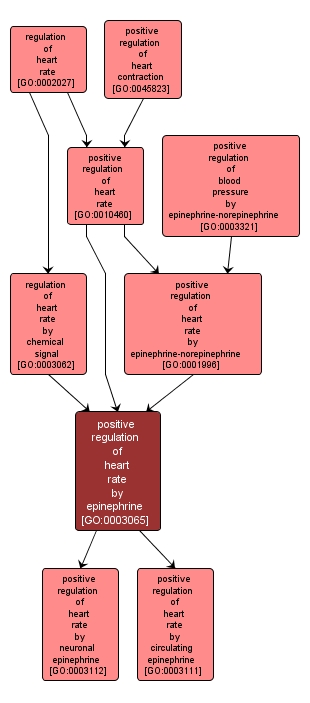GO TERM SUMMARY
|
| Name: |
positive regulation of heart rate by epinephrine |
| Acc: |
GO:0003065 |
| Aspect: |
Biological Process |
| Desc: |
The process by which the secretion of epinephrine into the bloodstream or released from nerve endings increases the rate of heart muscle contraction. |
Synonyms:
- adrenaline regulation of the rate of heart muscle contraction
- positive regulation of heart rate by adrenaline
- epinephrine cardiac chronotropy
- positive regulation of heart contraction rate by epinephrine
- adrenaline cardiac chronotropy
|














